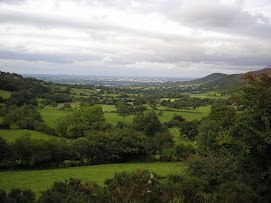
So after the book of Habbakuk, it is on to Zephaniah, a prophet who probably influenced King Josiah in his godly reformation, which began in the 8th year of Josiah's reign in Judah. Zephaniah foretold the fall of Jerusalem perhaps 35 years before it took place and he warned of a day of wrath, a day of trouble and distress, a day of wasteness and desolation. . . . because they have sinned against the Lord (1:15,17). He then appealed to the kingdom of Judah to repent and God assured them that He would, in His time, graciously restore the nation. Zephaniah also prophesied that Christ would come in power and glory. Known as the great day of the Lord (1:7,14), that end-time event is referred to 13 times in these three chapters.
Zephaniah, Nahum, Habakkuk, and Jeremiah prophesied at the same time. They were among the last prophets who spoke for God before the 70-year Babylonian captivity. They had some pretty strong words for the Israelites, words which are just as relevant to each one of us today, even though we may feel that they are of no consequence because they were written for a different people and a different time. But nothing is in the bible without reason. We just need to find the reasons.
Zephaniah, Nahum, Habakkuk, and Jeremiah prophesied at the same time. They were among the last prophets who spoke for God before the 70-year Babylonian captivity. They had some pretty strong words for the Israelites, words which are just as relevant to each one of us today, even though we may feel that they are of no consequence because they were written for a different people and a different time. But nothing is in the bible without reason. We just need to find the reasons.






No comments:
Post a Comment